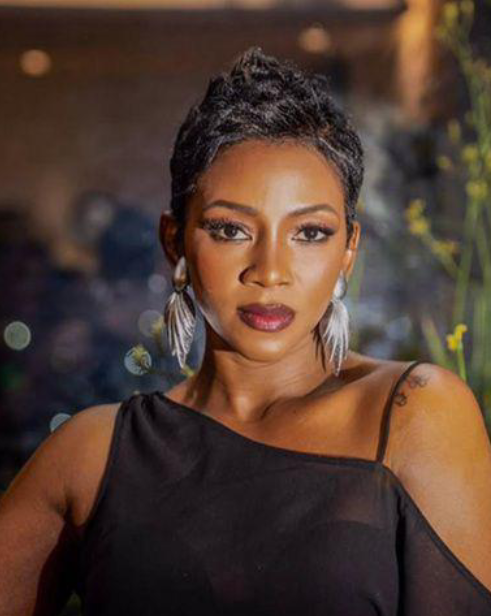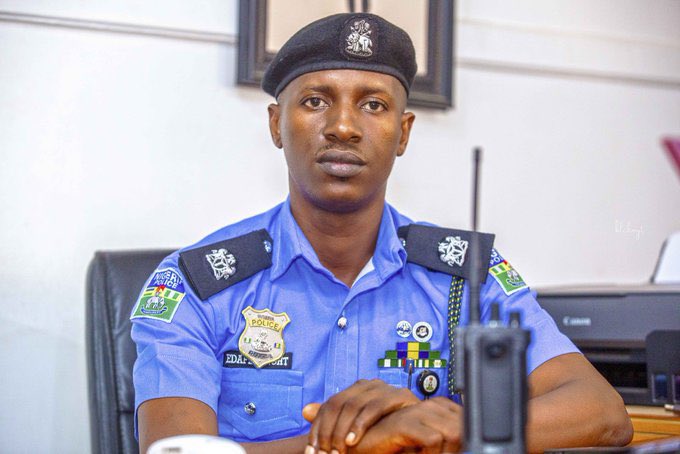
“Genevieve Nnaji Fires Back: Actress Sparks National Conversation After Man Urges Igbo Men to ‘Look Outside’ for Wives

The Nigerian social media space erupted into a heated debate after Nollywood icon Genevieve Nnaji responded sharply to an X user who advised Igbo men to avoid Igbo women and instead seek wives from East Africa. What began as a controversial post from a male user quickly escalated into a broader conversation about accountability, stereotypes, gender relations, and the danger of painting entire groups with one brush. With Genevieve’s name attached, the discussion surged to national attention, drawing thousands of reactions within hours and placing the actress once again at the center of a cultural conversation.
The drama began when an X user identified as @onyeka_chii shared a post urging Igbo men to look outside their cultural group when choosing partners. He wrote, “Dear Igbo men, instead of marrying Igbo woman that’ll falsely accuse you of raping your daughter, better look outside for wife. Go to East Africa, especially Rwanda, and pick a damsel. They’re all over social media and you can link up with them.” His message, which suggested that Igbo women are more likely to make false accusations and that East African women are automatically better alternatives, immediately drew outrage for its stereotyping tone.
What he may not have anticipated was that his post would catch the attention of Genevieve Nnaji, one of the most influential figures in Nigerian entertainment. Known for her calm demeanor and infrequent social media appearances, Genevieve only speaks publicly when she has something to say—and when she does, it resonates. Her reply was swift, pointed, and carried the weight of her characteristic clarity.
Responding directly to the post, she wrote: “In other words, instead of checking yourself and taking accountability, go for the unsuspecting and carry on with your evil. Got it.” With that single statement, she flipped the script back onto the original poster, implying that men who deliberately seek vulnerable women from other regions may be trying to avoid responsibility for harmful patterns of behavior. Her response quickly went viral, sparking a wave of reactions applauding her for challenging what many saw as a deeply problematic argument.
However, the conversation did not end there. Another user, @olieyannah, attempted to counter Genevieve’s point by arguing that the original tweet was criticizing false rape accusations, not women as a whole. “His tweet was clearly against false rape accusers,” she wrote. “But instead of holding the evil women accountable and demanding change, you chose to tweet this?”
Genevieve’s reply to this second comment only intensified the debate. She explained, “The same way a woman can't tell an abusive man apart from a good one is the same way you shouldn't say avoid all Igbo women. ‘Not all women.’” Her choice of words highlighted what many found compelling: the argument that just as women cannot be expected to magically discern dangerous men from safe ones, men also cannot categorize an entire ethnic group based on the actions of a few individuals. If “not all men” is a defense used widely in gender discussions, then “not all women” is equally valid.
Her responses sparked thousands of reposts and comments, with many applauding her for using her platform to speak against generalizations that harm women, especially within marginalized communities. Supporters praised her for addressing a sensitive topic that many believe is often twisted to shame women and deflect conversations about male accountability. Some female users shared personal stories about facing unfair stereotypes, while others criticized what they termed a growing trend of men claiming victimhood to avoid responsibility.
On the other hand, Genevieve’s comments did not come without pushback. A segment of users argued that false accusations—especially concerning serious crimes like rape—should be discussed openly without accusations of misogyny. They felt Genevieve was defending harmful behavior by shifting attention away from the consequences of false claims. But even among this group, many acknowledged that the original post went too far by suggesting Igbo women as a whole should be avoided.
The actress’s involvement reignited longstanding debates about gender, culture, and the complicated dynamics within Nigerian ethnic groups. Some commenters pointed out that the issue was not just about gender but also about the disrespectful undertone towards Igbo women, who have faced years of stereotypes from both within and outside their communities. Others noted that using East African women as a contrast was equally harmful, reducing them to passive, available alternatives instead of individuals with their own agency and complexities.
The exchange also brought attention to a broader pattern on social media where men and women increasingly turn cultural differences into battlegrounds. For many observers, Genevieve’s response served as an important reminder that societal issues cannot be solved by demonizing entire groups but require introspection, fairness, and accountability on all sides. It also stressed the importance of avoiding sweeping generalizations that can fuel division and breed resentment.
What made Genevieve’s response particularly powerful was not simply the content itself but who it came from. Her decades-long career, combined with her reputation for intelligence and discretion, made her words resonate beyond the typical celebrity commentary. Many expressed that if someone like Genevieve—who rarely engages in online back-and-forths—stepped in, then the issue must have struck a deep chord.
As the debate continues online, it stands as another example of how celebrity voices can help shift conversations toward more nuanced perspectives. While some argue that Genevieve’s comments opened up space for more balanced discussions, others say the exchanges reveal deeper societal tensions that must be addressed beyond social media drama.
In the end, the exchange did more than trend; it exposed a major cultural fault line. It highlighted the dangers of gender-based stereotypes, the importance of accountability, and the need to treat individuals as individuals—not as representatives of an entire ethnic group. Whether one agrees with Genevieve or not, her intervention forced people to confront uncomfortable truths about how quickly and unfairly society labels women, especially within their own cultural circles.
What remains clear is that this moment will linger long after the trend fades. It serves as a reminder that conversations about gender, identity, and cultural unity require care, honesty, and empathy. And with Genevieve Nnaji adding her voice, the message was impossible to ignore.


